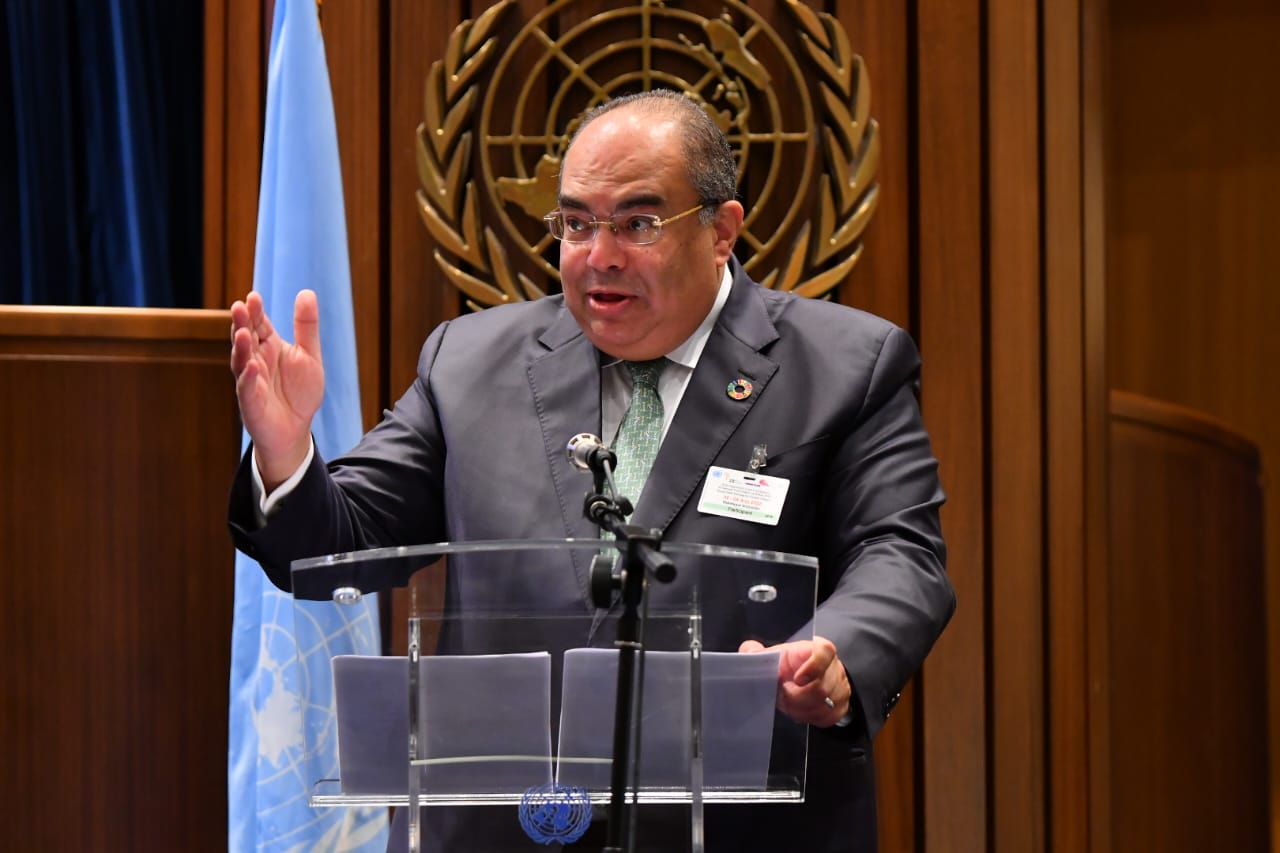Integration Between Government SDGs and Corporate ESG is Necessary
Corporate Environmental Practice Standards Must Include All Aspects of Environmental and Climate Action
Dr. Mahmoud Mohieldin, UN Climate Change High Level Champion for Egypt and UN Special Envoy on Financing 2030 Sustainable Development Agenda, said that some surveys reported that ESG have gained more attention in the Arab region with Egypt and the UAE hosting COP27 and COP28.
This came during his participation in the Roundtable Discussion with Financial Institutions on ESG Reporting and Designing Innovative Financial Instruments for SDG Acceleration
Organized by the Central Bank of Bahrain (CBB) in partnership with the Ministry of Sustainable Development, with the participation of Noor Ali ElKhulaif, Bahrain Minister of Sustainable Development, Rasheed Al Maraj, CBB Governor, and a number of officials and representatives of banks and financial institutions.
Mohieldin noted that Egypt, Bahrain, Saudi Arabia and the UAE have made great strides to establish strong and clear ESG, explaining that the application of these standards is witnessing growth and development in many countries in the region.
Mohieldin explained that the SDGs for governments are equivalent to ESG for corporates, stressing the need to align SDGs with ESG and that both take parallel paths.
He pointed out the importance of establishing clear ESG standards and regulatory codes in view of their importance in driving economic growth, improving social conditions and implementing environmental and climate activities.
In this regard, Mohieldin highlighted the importance of the report issued by the Independent High-Level Expert Group formed under the guidance of the UN Secretary General Antonio Guterres, which established clear ESG standards with the aim of reducing the phenomenon of green washing. He also referred to the standards and regulatory codes issued by the International Organization of Standardization (ISO) during COP27 in Sharm El Sheikh, as well as the standards approved by the International Organization of Securities Commissions (IOSCO) that regulate more than 95% of world financial markets.
Mohieldin stated that there is a wide controversy about the role of corporates and business sector in societies and whether their main goal is to achieve profits or contribute to environmental and social action, explaining that the two goals integrate and do not contradict as the contributions of corporates and business sector to environmental and social activities help maximizing returns and profits.
He added that there is another debate on corporate environmental practice standards and limiting them to emission reduction, stressing the need of adopting a comprehensive approach that brings together all aspects of environmental and climate action, including adaptation and dealing with loss and damage resulting from climate change.
